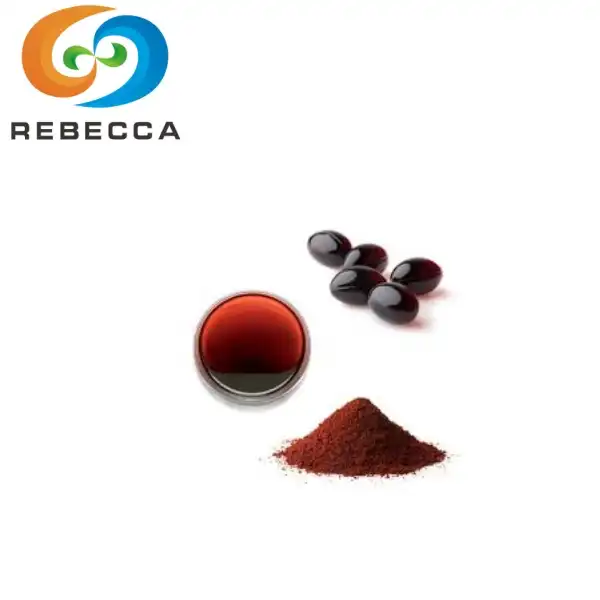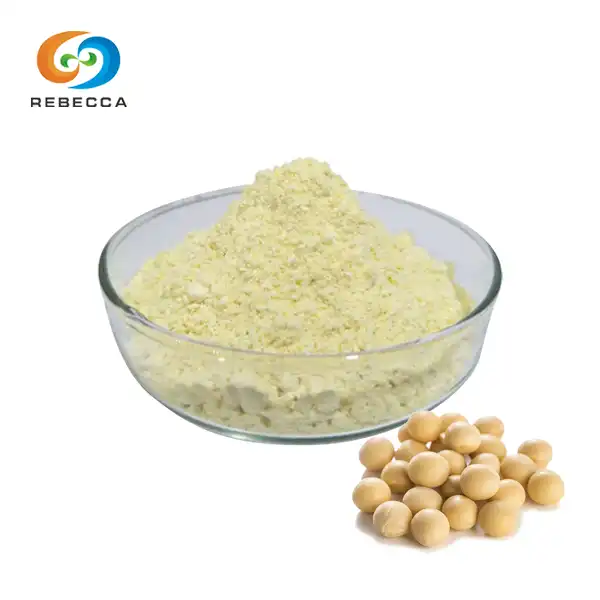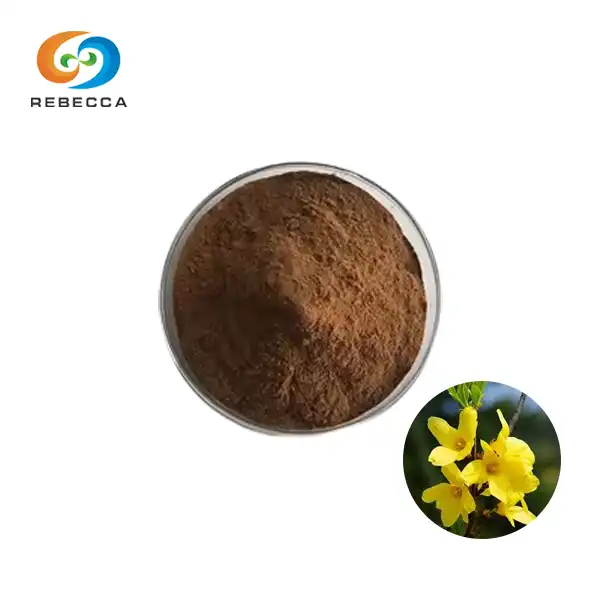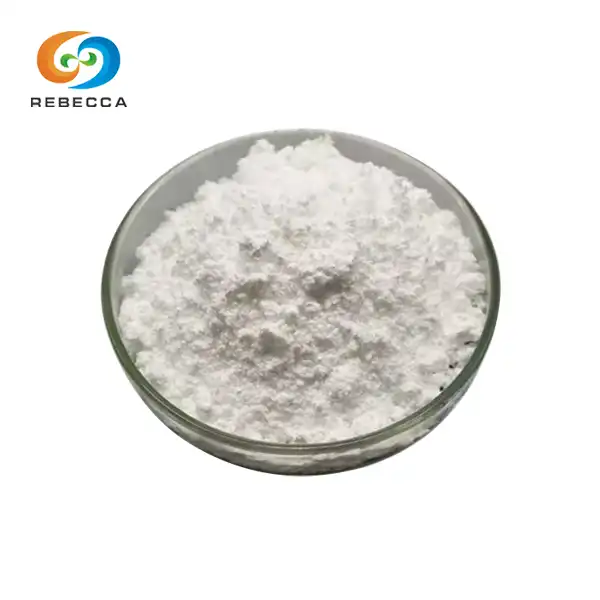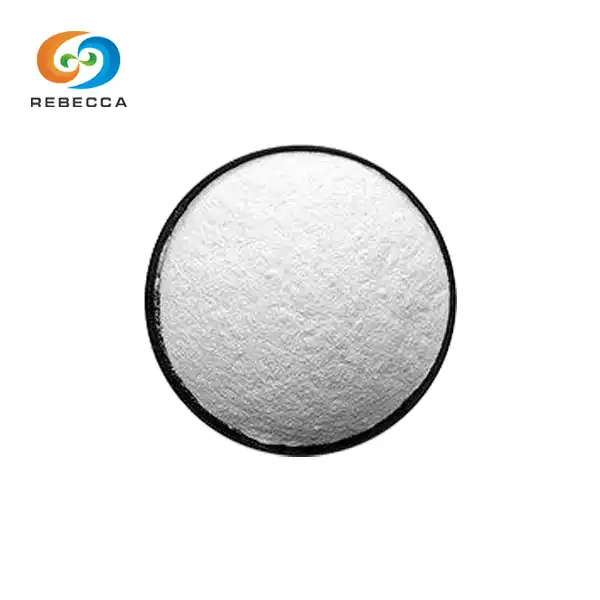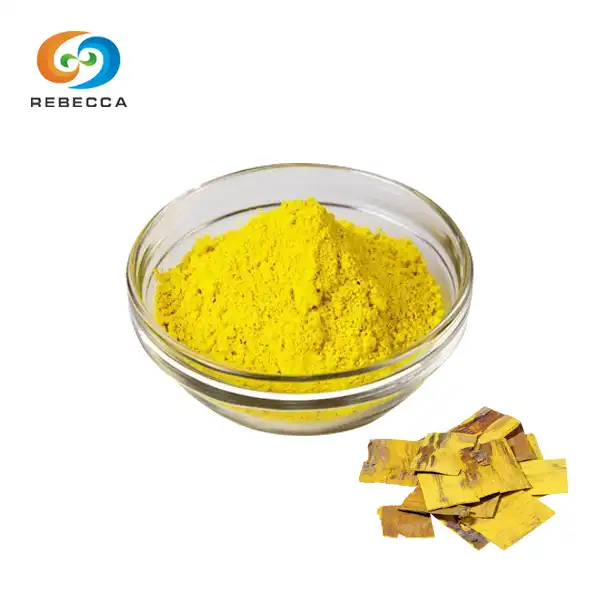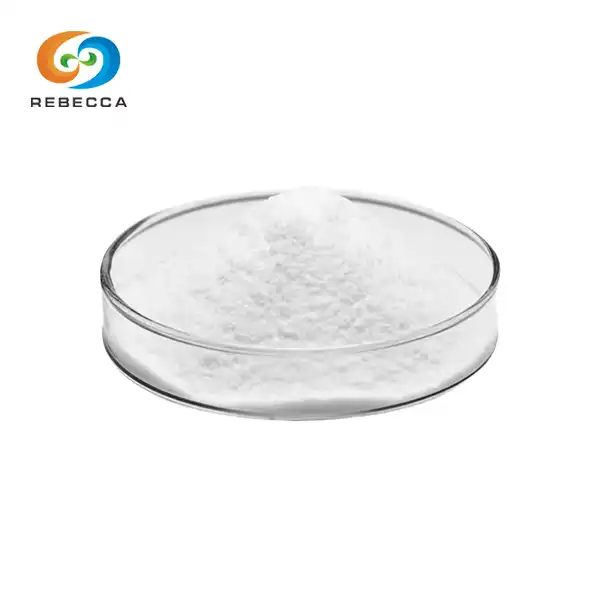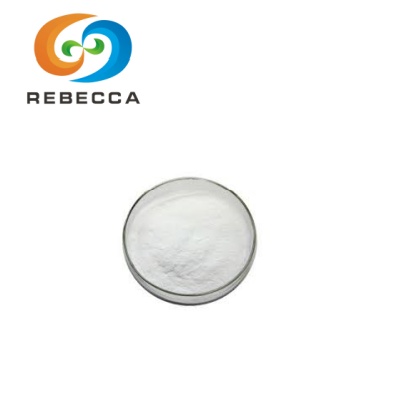What are the main active ingredients in Gastrodia elata Exract?
Gastrodia elata, commonly known as Tianma in Traditional Chinese Medicine (TCM), is a herb that has been used for centuries to treat various ailments.
To understand why Gastrodia elata is so valued, we need to delve into its chemical composition and explore the main active ingredients that contribute to its therapeutic properties. Gastrodia elata extract is a complex mixture of compounds, each playing a unique role in its overall efficacy.
Let's explore these components in detail.
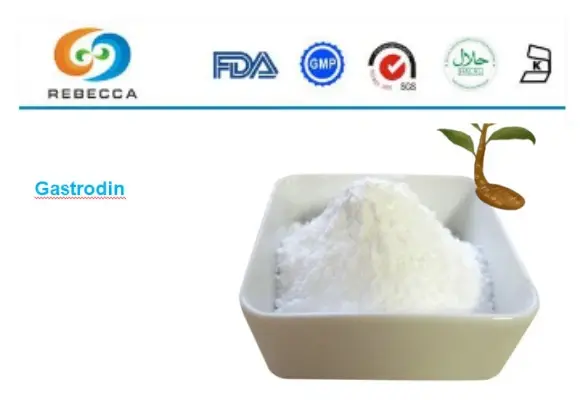
Phenolic Compounds
Phenolic compounds are the most well-known and studied active ingredients in Gastrodia elata extract. These organic compounds are characterized by their aromatic ring structure and play a crucial role in the plant's defense mechanisms and therapeutic properties.
Gastrodin, the most abundant phenolic compound in Gastrodia elata, is often considered the primary active ingredient. This compound has been extensively researched for its neuroprotective properties. Studies have shown that gastrodin may help improve cognitive function, reduce anxiety, and protect against neurological disorders.
P-hydroxybenzyl alcohol is another significant phenolic compound found in Gastrodia elata. This compound has been related with antioxidant and anti-inflammatory impacts, which may contribute to the herb's generally wellbeing benefits.

The components of Gastrodia elata extract, including vanillic acid and vanillyl alcohol, are also displayed in vanillic acid and vanillyl alcohol, both subsidiaries of vanillin. These compounds have been considered for their potential antioxidant and neuroprotective properties. Investigate proposes that they may play a part in ensuring brain cells from oxidative stretch and inflammation.
P-hydroxybenzaldehyde is another phenolic compound found in Gastrodia elata. Whereas less examined than a few of the other compounds, it is accepted to contribute to the herb's generally restorative impacts, especially in terms of its antioxidant properties.
The synergistic activity of these phenolic compounds is thought to be mindful for numerous of the wellbeing benefits related with Gastrodia elata extract, counting its potential to back brain wellbeing, diminish aggravation, and secure against oxidative stress.
Polysaccharides
While phenolic compounds often take center stage, polysaccharides are another crucial group of active ingredients in Gastrodia elata extract. Polysaccharides are complex carbohydrates made up of long chains of sugar molecules. In Gastrodia elata, these compounds play a significant role in the herb's therapeutic properties, particularly in terms of immune regulation.
Gastrodia polysaccharide, the primary polysaccharide found in the herb, has been the subject of numerous studies. Research has shown that this compound may have immunomodulatory effects, meaning it can help regulate and balance the immune system. This property is particularly valuable, as a well-functioning immune system is crucial for overall health and disease prevention.

In addition to immune regulation, Gastrodia polysaccharides have been associated with other potential health benefits. A few consider recommend that these compounds may have antioxidant properties, making a difference to ensure cells from harm caused by free radicals.
Other investigations have uncovered potential anti-inflammatory impacts, which seem contribute to the herb's conventional utilize in treating different fiery conditions.
The presence of these polysaccharides adds another layer to the complexity of Gastrodia elata extract, highlighting the multifaceted nature of its therapeutic potential. As research continues, we may uncover even more benefits associated with these important compounds.
Volatile Oils
Volatile oils, also known as essential oils, are another group of active ingredients found in Gastrodia elata extract. These compounds are characterized by their ability to evaporate at room temperature, giving plants their distinctive aromas. In Gastrodia elata, these volatile oils contribute not only to the herb's unique scent but also to its medicinal properties.
The volatile oil content of Gastrodia elata is complex and varied, consisting of numerous different compounds.A few of the key components recognized in thinks about incorporate α-pinene, β-pinene, limonene, and eucalyptol.
For occasion, α-pinene and β-pinene have been considered for their potential anti-inflammatory and pain relieving properties. Limonene, commonly found in citrus natural products, has been related with potential antioxidant impacts in a few studies. Eucalyptol, too known as 1,8-cineole, has been investigated for its potential anti-inflammatory and bronchodilator impacts.

While the volatile oil content of Gastrodia elata is generally lower than that of some other medicinal herbs, these compounds are believed to contribute to the overall therapeutic effects of the extract. The interaction bet ween these volatile oils and other active ingredients in Gastrodia elata may enhance the herb's efficacy through synergistic effects.
It's important to note that the exact composition and concentration of volatile oils in Gastrodia elata can vary depending on factors such as growing conditions, harvesting time, and extraction methods. This variability highlights the importance of standardized extraction processes in ensuring consistent quality and efficacy of Gastrodia elata products.
Organic Acids And Esters
Organic acids and their esters form another important group of active ingredients in Gastrodia elata extract. These compounds, while often overlooked, play significant roles in the herb's overall chemical profile and contribute to its therapeutic properties.
Succinic acid is one of the primary organic acids found in Gastrodia elata. This compound, also known as butanedioic acid, is a key intermediate in cellular energy production. In the context of Gastrodia elata, succinic acid has been studied for its potential neuroprotective effects. A few research about recommend that it may offer assistance in securing brain cells from oxidative stress and make strides mitochondrial work, which is pivotal for cellular energy production.
In expansion to succinic acid, Gastrodia elata contains other organic acids and their esters. These incorporate compounds like citric acid, malic acid, and different phenolic acid esters. Each of these compounds contributes to the general acidity of the extract and may play parts in its biological activities.
The nearness of these organic acids and esters in Gastrodia elata extract is noteworthy for a few reasons. Firstly, they play a role in enhancing the overall antioxidant capacity of herbs, thereby neutralizing harmful free radicals in the body.
Secondly, a few of these compounds may upgrade the bioavailability of other active ingredients, moving forward the by and large efficacy of the extract.
About Rebecca Bio-Tech
Rebecca Bio-Tech's dedication to producing high-purity extracts is crucial in the field of natural medicine and supplement production. By offering Gastrodin at 99% purity, Rebecca Bio-Tech provides researchers, pharmaceutical companies, and supplement manufacturers with a reliable, high-quality ingredient for their products and studies. This level of purity allows for more precise dosing and potentially more effective products.
Rebecca Bio-Tech's focus on Gastrodin is particularly noteworthy given the compound's importance in Gastrodia elata extract. As discussed earlier, Gastrodin is considered one of the primary active ingredients responsible for many of the herb's therapeutic effects, particularly its neuroprotective properties. By isolating and purifying this compound to such a high degree, Rebecca Bio-Tech is contributing to the advancement of research and product development in this area.

The company's work aligns with the growing interest in natural products and traditional medicines in the global health and wellness industry. As more consumers and healthcare professionals seek out natural alternatives and complementary therapies, high-quality, scientifically-produced extracts like those offered by Rebecca Bio-Tech become increasingly important.
For those interested in learning more about Rebecca Bio-Tech's high purity Gastrodin 99% or their other products, the company welcomes inquiries. They can be contacted at information@sxrebecca.com for further information. This open line of communication demonstrates Rebecca Bio-Tech's commitment to transparency and customer service, allowing potential clients or research partners to engage directly with the company and learn more about their products and processes.
References
1. Chen, P. J., Hsieh, C. L., Su, K. P., Hou, Y. C., Chiang, H. M., Lin, I. H., & Sheen, L. Y. (2009). The antidepressant effect of Gastrodia elata Bl. on the forced-swimming test in rats. The American Journal of Chinese Medicine, 37(03), 503-514.
2. Jang, J. H., Son, Y., Kang, S. S., Bae, C. S., Kim, J. C., Kim, S. H., ... & Kim, J. S. (2015). Neuropharmacological potential of Gastrodia elata Blume and its components. Evidence-Based Complementary and Alternative Medicine, 2015.
3. Liu, Y., Gao, J., Peng, M., Meng, H., Ma, H., Cai, P., ... & Xu, Z. (2018). A review on central nervous system effects of gastrodin. Frontiers in pharmacology, 9, 24.
4. Zhan, H. D., Zhou, H. Y., Sui, Y. P., Du, X. L., Wang, W. H., Dai, L., ... & Zhao, H. L. (2016). The rhizome of Gastrodia elata Blume–An ethnopharmacological review. Journal of ethnopharmacology, 189, 361-385.
5. Xu, X., Lu, Y., & Bie, X. (2007). Protective effects of gastrodin on hypoxia-induced toxicity in primary cultures of rat cortical neurons. Planta medica, 73(07), 650-654.
6. Gao, X., Wang, W., Wei, S., & Li, W. (2009). Review of pharmacological effects of Glycyrrhiza radix and its bioactive compounds. Zhongguo Zhong yao za zhi= Zhongguo zhongyao zazhi= China journal of Chinese materia medica, 34(21), 2695-2700.
